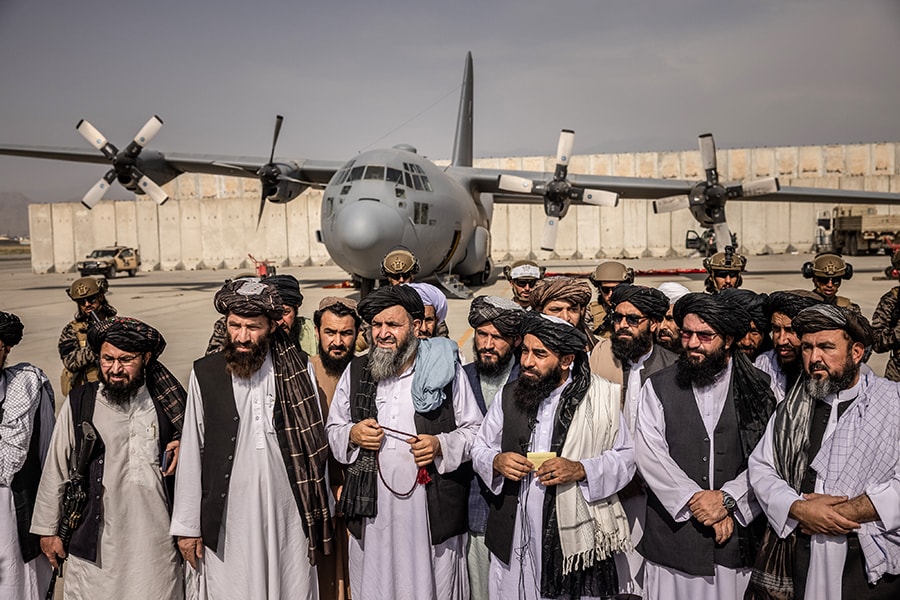
After quick victory, Taliban find governing is harder
Although surprised by the rapid surrender of the Afghan government, the Taliban movement has been preparing to take power for more than a decade, steadily expanding its shadow government in waiting
 Taliban officials, including Zabihullah Mujahid, third from right, announcing victory at the airport in Kabul, Afghanistan, on Tuesday, Aug. 31, 2021. Afghans woke up Tuesday morning to the reality of an Afghanistan firmly under the control of the Taliban amid intensifying fears that their country was being subsumed by a repressive regime as it battles an escalating economic and humanitarian crisis. Image: Jim Huylebroek/The New York Times
Taliban officials, including Zabihullah Mujahid, third from right, announcing victory at the airport in Kabul, Afghanistan, on Tuesday, Aug. 31, 2021. Afghans woke up Tuesday morning to the reality of an Afghanistan firmly under the control of the Taliban amid intensifying fears that their country was being subsumed by a repressive regime as it battles an escalating economic and humanitarian crisis. Image: Jim Huylebroek/The New York Times
KABUL, Afghanistan — Sitting in the home of the spy chief of the fallen Afghan government, cradling a Beretta submachine gun in his lap, Mawlawi Habib Tawakol recounted how he and his fighters were surprised at how quickly they were ordered to enter Kabul Aug. 15, even after the Taliban’s rapid advance across Afghanistan.
That morning, Tawakol’s Taliban unit arrived on the outskirts of the Afghan capital, expecting to camp out there possibly for weeks while a formal handover was negotiated. But there would be little waiting. President Ashraf Ghani and many other senior officials were fleeing, catching everyone off guard.
“That afternoon, our leadership ordered us to enter the city in order to prevent looting,” he said. The Taliban intelligence chief, Haji Najibullah, told him and his men to rush to the headquarters of the Afghan spy agency, the National Directorate of Security, to secure equipment and documents. Prison cells, offices, security posts — all had been abandoned.
“There was no one there except a deputy director, who handed the building to us,” Tawakol said. “All the prisoners had already escaped.”
Two weeks later, the Taliban are expected to formally announce their new government as early as Thursday, including naming the insurgency’s top religious figure, Sheikh Haibatullah Akhundzada, as supreme leader of Afghanistan. But there is still an important gap between naming a government and fully taking up its functions, as Tawakol and other Taliban officials have found.
©2019 New York Times News Service







